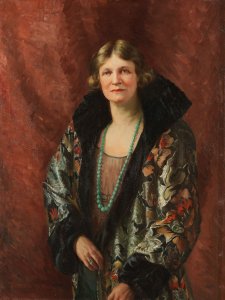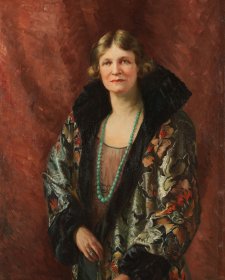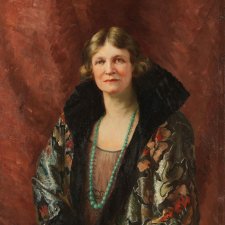Rose Scott (1847–1925), feminist, devoted much of her life to campaigns that resulted in increased independence for Australian women. Though educated in a manner designed to prepare her for marriage, Scott believed that ‘life is too short to be wasted in the service of one man’, and in her early thirties became increasingly involved in intellectual and political activities. She helped establish the Women’s Literary Society in 1889, and was among the founders of the Womanhood Suffrage League (1891), the New South Wales National Council of Women (1896) and The Women’s Club (1901). A key player in the Australian campaign for universal suffrage, Scott also fought for women’s employment, property and education rights and for reforms aimed at restraining the sexual exploitation of women and girls. Scott retired from public life in 1922 and was described as ‘one of the most notable women in the State’ on her death in Sydney in 1925.
New Zealand-born May Moore established a studio in Sydney in 1910 and was joined in the business by her sister Mina in 1911. By 1913, they had established a studio in Collins Street, Melbourne, and were known for a distinctive, dramatic style said to have originated from May's interest in the theatre. Mina managed the Melbourne studio while May remained in Sydney, developing ‘a business and a reputation that were the envy of many competing concerns’.
Collection: National Portrait Gallery
Purchased 2012



On one level The Companion talks about the most famous and frontline Australians, but on another it tells us about ourselves.



First Ladies profiles women who have achieved noteworthy firsts over the past 100 years.



Visit us, learn with us, support us or work with us! Here’s a range of information about planning your visit, our history and more!